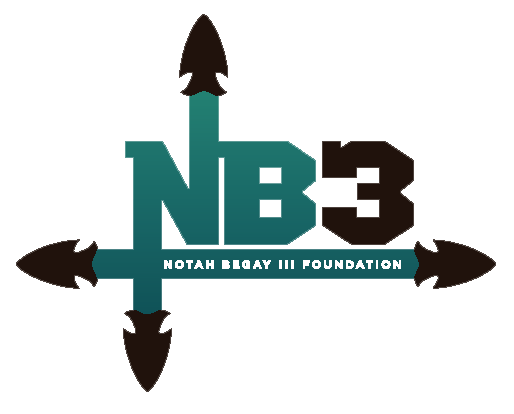May 23, 2016

Establishing Better Eating and Wellness Habits in the Early Years
I have a clear memory of my grandfather telling me as a child when he saw me eating Doritos, “That is not food.” As I got older, I started thinking about why he said that. Today as a mother and a teacher at Keres Children’s Learning Center (KCLC) in Cochiti Pueblo, New Mexico, I think about where our food comes from and how I can teach my daughters healthy eating habits and wellness practices.
At KCLC, we aim to provide a holistic approach to education that incorporates the following guiding principles for our school around eating and wellness:
- KCLC practices traditional Cochiti beliefs about food, food preparation, eating, serving and exercise.
- KCLC believes it is important to train children’s minds and palates through good nutrition and cooking experiences at school by preparing and tasting healthy alternatives to unhealthy foods.
- KCLC supports families in developing healthy eating habits.
- KCLC provides children with authentic opportunities for movement and other physical activities that will help prevent future health problems such as diabetes, obesity and coronary disease.
Traditional values support the healthy development of children in daily life.
It is especially important to practice these beliefs early. Beginning with encouraging mothers to breastfeed in the early development of the child’s palate and then continuing with healthy foods in the first few years of life into the preschool years. This is not easy. We are constantly bombarded with bad food choices and opportunities to not take care of our bodies. As a result, it is our responsibility as the adults, parents and grandparents to be firm by not allowing our children to eat processed foods on a regular basis—period. Parents and adults in the household need to be the role models.
At KCLC, we have put this belief into practice by implementing a healthy foods policy and working with the parents to provide healthy food options in school lunches and not allowing sugary sweetened beverages. It’s not that we can’t celebrate a birthday with cake, we do, but it is seeing cake, chips, candy, chicken nuggets as a “guest food.” As a result, our older students now tell the younger students who bring juice or chicken nuggets that they cannot bring those foods to school. The children do not fully comprehend why, but they understand it has something to do with their health and wellbeing. As part of the learning at KCLC, the children are looking at their world and identifying what foods grow where, why we should eat more locally and how much waste packaged food items create.
My grandparents taught us not to be choosy with what we ate. My husband and I continue that tradition in teaching our own daughters how to eat healthy and to eat what was served. We are fortunate that we still come from a tradition of cooking from scratch. However, this tradition continues to be compromised by packaged and processed foods. With my own children and my students at KCLC, I take into consideration our Pueblo beliefs around food. Having respect for food and not being choosy about what one eats.
I am neither a dietician nor a nutritionist and do not pretend to be. However, I am a parent and community member who wants our children in our Indigenous communities to have healthy teeth, bodies. Also, to have a chance to experience their lives to the fullest potential with all that the beauty of our languages, traditions and ceremonies hold for us.
At KCLC, it is important for us to start planning our garden, because we eventually want children to regain the understanding of growing our own food. That is who we are as Pueblo people and unfortunately, so many of us have gotten away from that base. Ultimately, my grandfather was right. Doritos are not food. He knew what was food, because he grew his own food until he passed away when he was 85 years old. He was fit, healthy and truly enjoyed his life to the fullest. My grandfather helped me navigate my food choices by showing me the difference between real food and fake food (processed foods). With his pointed observation about Doritos, he demonstrated that rejecting fake food is not being choosy, it’s being traditional.
Our Indigenous languages and cultures have a beautiful, proactive, integrated tradition of feeding our communities starting with babies and breastfeeding. Eating healthy and encouraging wellness must be seen as an integrated aspect of our everyday lives. Eating healthy and wellness are not glamorous things to do, but they are the right things to do so that our children can enjoy all the beautiful things in life and have the strength to endure the hard times as well.
NB3 Indigenous Early Childhood Challenge: If appropriate to share, please share one belief, practice, or saying your tribe upholds to ensure the wellbeing and healthy eating habits of your children. Please also share your tribal affiliation. NB3 will pick one comment to be highlighted on the banner going across the NB3 Foundation website.

About the Author
Trisha Moquino is from Cochiti Pueblo, Ohkay Owingeh, and Santo Domingo Pueblo. She graduated with a B.A. in American Studies from Stanford University; she holds a M.A. in Elementary/Bilingual Education from the University of New Mexico; and she is trained in the Montessori Method, Primary (ages 3-6, United Montessori Association) and Elementary I (ages 6-9, Montessori Education Center of the Rockies). She is a co-founder of Keres Children’s Learning Center and teaches in both the primary and elementary classrooms there. Her own children and family are her inspiration for continuing to work towards creating a holistic model of education that is inclusive of our own Indigenous language and worldview and that elevates the integrated importance of healthy eating and wellness in our little ones.
The views, opinions and positions expressed by the authors and those providing comments on these blogs are theirs alone, and do not necessarily reflect the views, opinions or positions of the NB3 Foundation, its board or any employee thereof. NB3 makes no representations as to accuracy, completeness, timeliness, suitability or validity of any information presented by individual authors and/or commenters on our blogs and will not be liable for any errors, omissions, or delays in this information or any losses, injuries or damages arising from its display or use.
NB3 reserves the right to delete, edit, or alter in any manner we see fit. Blog entries or comments that we, in our sole discretion, deem to be obscene, offensive, defamatory, threatening, in violation of trademark, copyright or other laws, of an express commercial nature, or otherwise unacceptable.